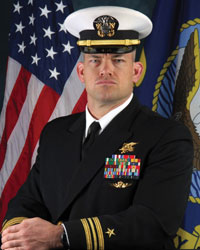

The test is not a complex one: when the alarm goes off, do you get up out of bed, or do you lie there in comfort and fall back to sleep? If you have the discipline to get out of bed, you win- you pass the test. I love this concept: “The moment the alarm goes off is the first test it sets the tone for the rest of the day. One of the most fundamental and important truths at the heart of Extreme Ownership: there are no bad teams, only bad leaders. They all blamed everyone else, and inevitably the team was ineffective and unable to properly execute a plan. When a bad SEAL leader walked into a debrief and blamed everyone else, that attitude was picked up by subordinates and team members, who then followed suit. Their unit remains the most highly decorated special. Navy SEAL officers in the toughest urban combat mission in the history of the SEAL teams. If underperformers cannot improve, the leader must make the tough call to terminate them and hire others who can get the job done. Jocko Willink and Leif Babin served as U.S. But if the underperformer continually fails to meet standards, then a leader who exercises Extreme Ownership must be loyal to the team and the mission above any individual. If an individual on the team is not performing at the level required for the team to succeed, the leader must train and mentor that underperformer. Leaders must own everything in their world. Retired US NAVY SEALs, Jocko Willink and Leif Babin teach leaders how to lead and manage groups effectively. They are simply focused on the mission and how best to accomplish it.” I highly recommend this book on leadership. forces secure Ramadi, a city deemed all but lost. The best leaders are not driven by ego or personal agendas. Sent to the most violent battlefield in Iraq, Jocko Willink and Leif Babin’s SEAL task unit faced a seemingly impossible mission: help U.S. “For leaders, the humility to admit and own mistakes and develop a plan to overcome them is essential to success.


 0 kommentar(er)
0 kommentar(er)
